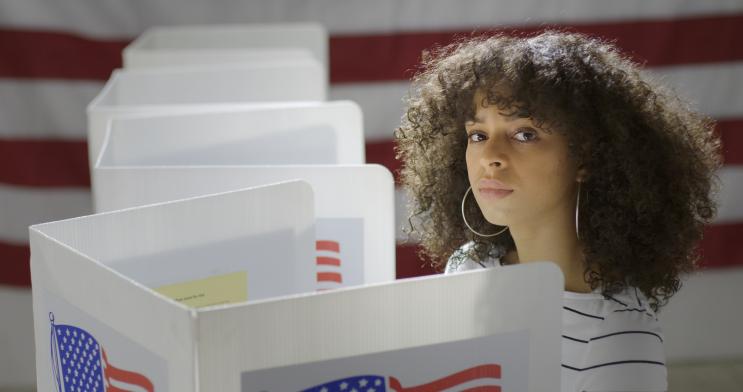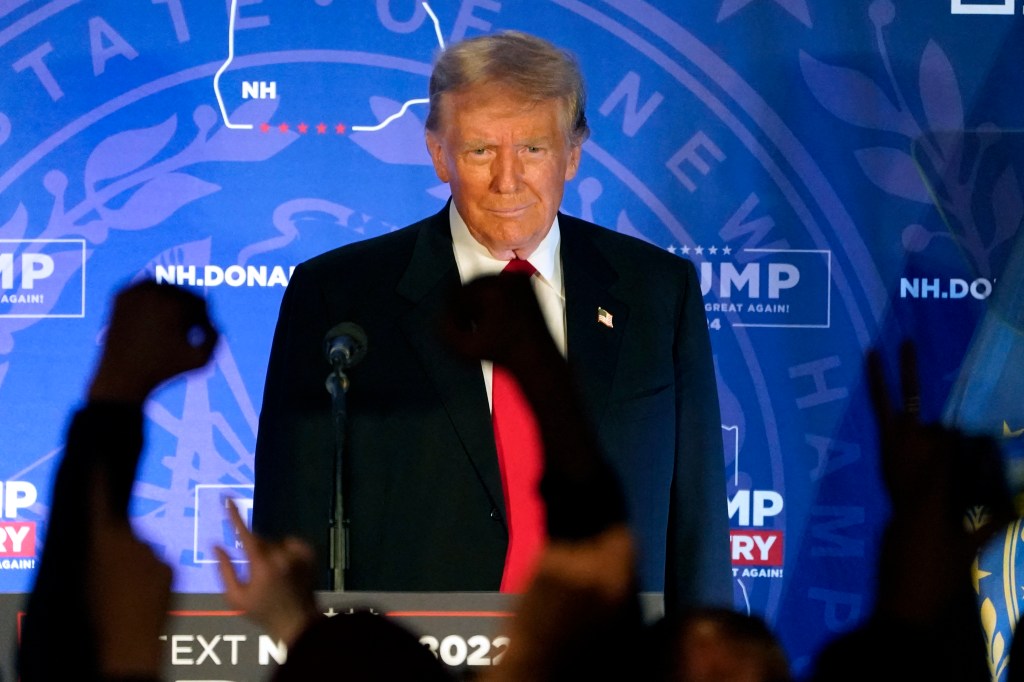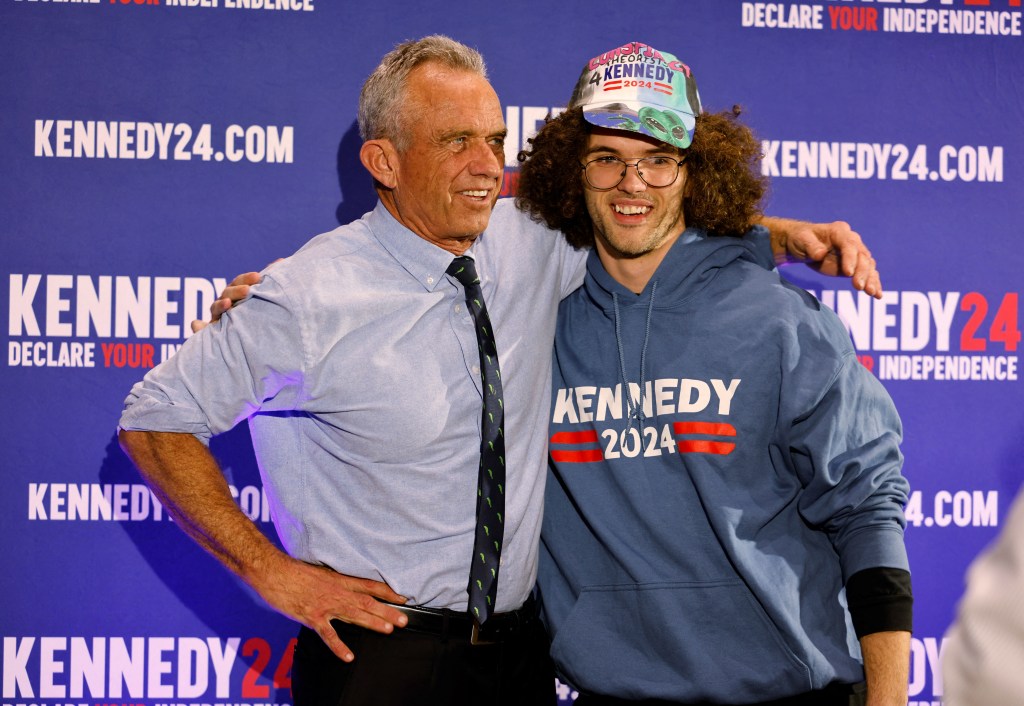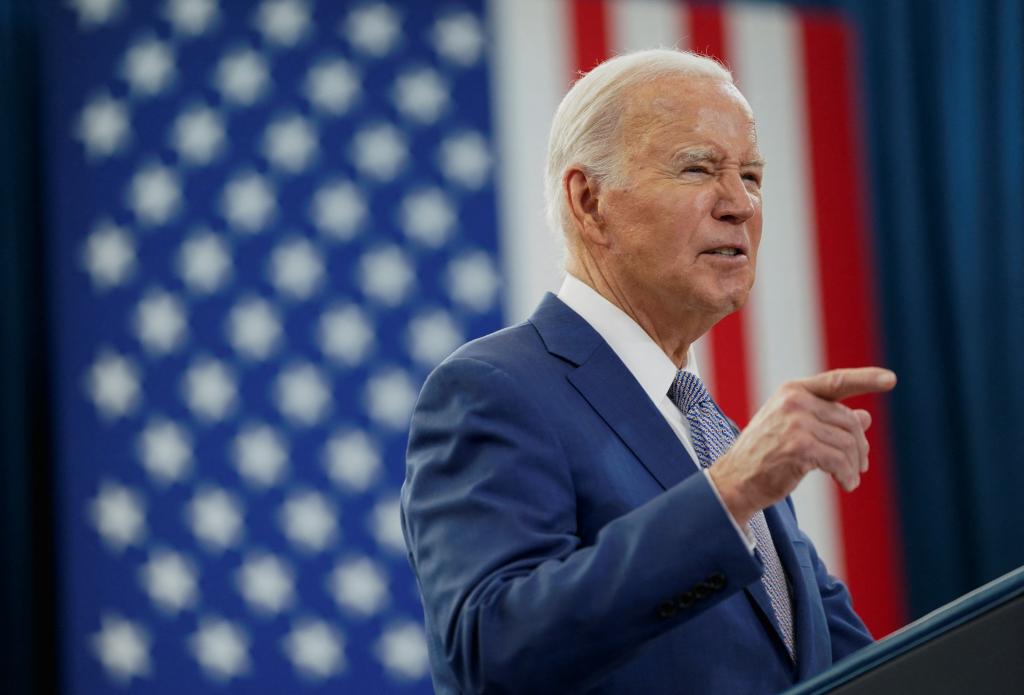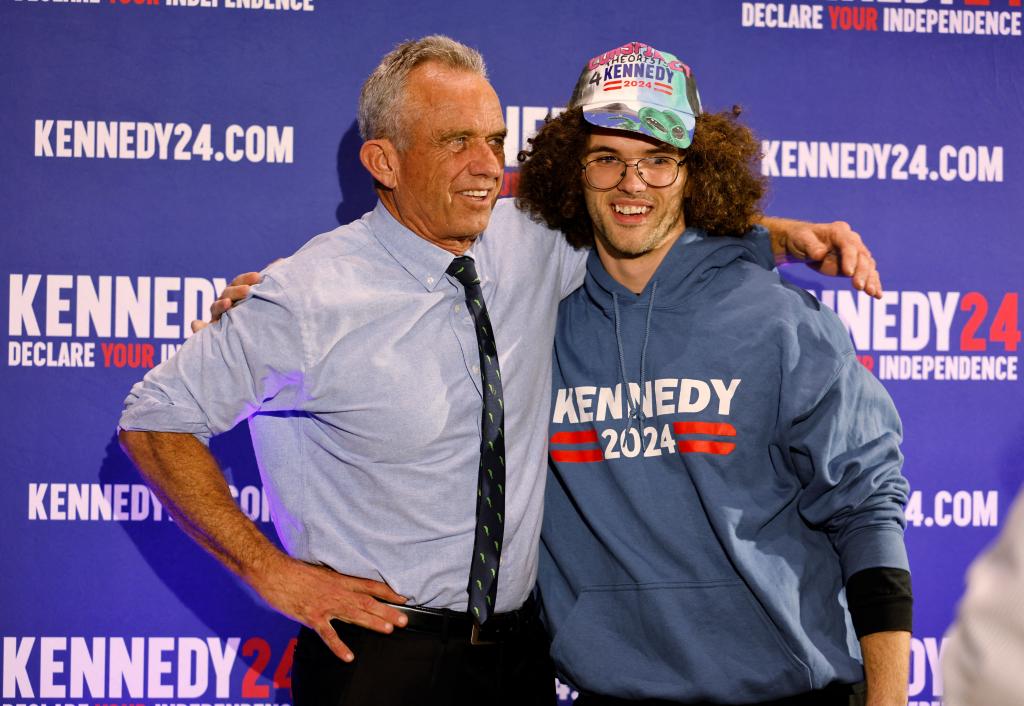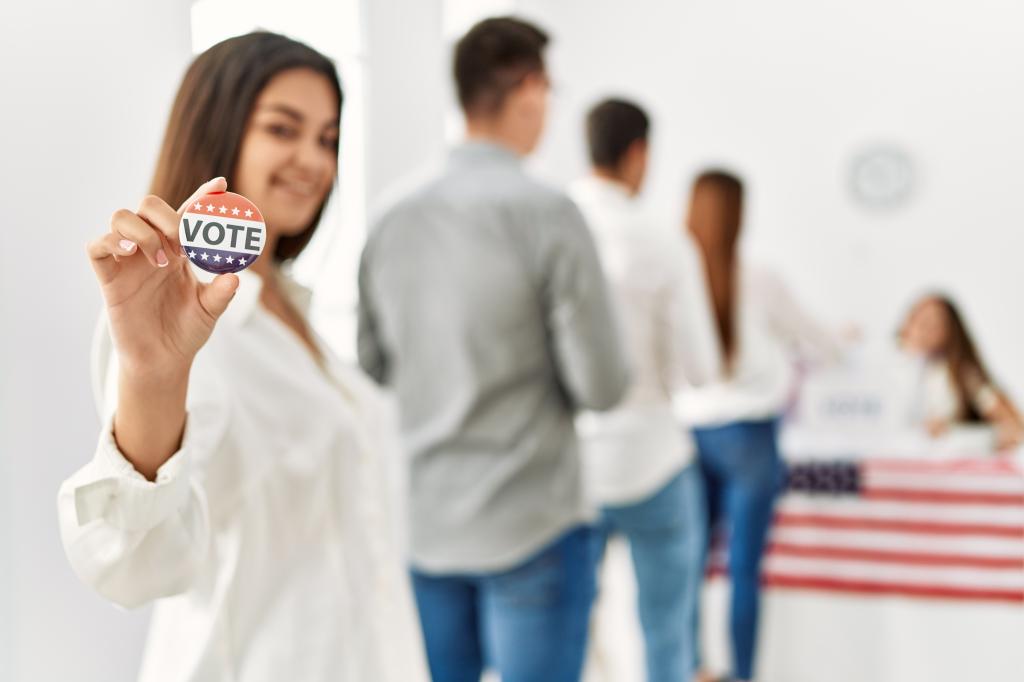The percentage of young Americans planning to vote in 2024 is down 8% from the last presidential election cycle. I don’t think it’s because they’ve gotten lazier. I think it’s because they’re more disillusioned than ever.
Is it any wonder Zoomers — who only remember “lesser of two evils” elections — could be feeling disaffected?
According to Harvard Kennedy School’s annual youth poll, the percent of 18- to 29-year-olds who are “definitely” going to vote dropped from 57% in 2020 to 49% in 2024.
The trend held across every single group — every race, gender, political party, age subgroup and college degree status.
The most precipitous drops in expected voter participation were among current college students, black and Hispanic voters.
Independents were also especially likely to say they no longer plan to vote — with just 31% saying they “definitely” will, compared to 56% of Republicans and 66% of Democrats.
This is especially significant, considering that there are more independent Zoomers than Republicans or Democrats. In fact, 4 in 10 voting-age Gen Zers don’t identify with a party.
My generation appears to be “politically homeless” after growing up in fierce partisanship. Like most Americans, they’re unenthused with the choices before them this cycle, and seem to be saying, “Why bother?”
“A theme in the 2016 election that I think it is going to be a theme this time too is these so-called ‘double haters’ — basically people who have an unfavorable view of both Biden and Trump,” Kyle Kondik, a pollster at the University of Virginia Center for Politics, told The Post. “Part of the decision that those people might make is just to decide not to vote.”
It’s no secret that Donald Trump was not too popular with young voters overall. So in 2020, many in my generation seemed hopeful that former Vice President Joe Biden would bring the return to normalcy (or the progressive policies) that they craved.
But, to their credit, Zoomers demanded actual results — and were sorely disappointed. In fact, Biden’s approval rating dropped most dramatically with Gen Z voters, and the Harvard poll found he has a mere 35% job approval today.
Although young voters are notoriously blue, the Harvard poll found Biden has just an 11-point lead over Trump in a head-to-head matchup.
“Biden’s leads with young people have been pretty poor,” Kondik said. “That’s a group that a Democratic presidential candidate should be winning by 20-plus points.”
He says a bad youth turnout for Biden could even ultimately make a difference in the election’s outcome: “We’re in an era of highly competitive presidential elections. Any little slippage with a certain subgroup can be a problem.”
Neither Biden nor Trump fared well in terms of levels of trust, either.
Zoomers trusted Biden more than Trump on abortion, education and protecting democracy. Meanwhile, they trusted Trump more on the economy, national security, strengthening the working class and immigration.
But more Gen Zers said they trusted neither candidate on climate change, health care, gun violence, Ukraine, crime and public safety or the Israel-Hamas war.
That’s pretty grim. Young people widely distrust the candidates before them to tackle some of the most important issues — from their domestic security to their international security, and their environment’s health to their medical health.
That’s probably why, if given the option of third-party candidates, 10% tack toward Robert F. Kennedy Jr., with 3% for Cornel West and 2% for Joe Manchin. But there’s also a whopping 31% who say they “don’t know” whom they support.
As a member of Gen Z, I commiserate with young people who might be thinking it’s simply not worth the bother anymore.
Imagine if the first ballot you cast was in 2016, or in 2020. Imagine if every election cycle you can really remember caused friends to block each other on social media, family members to cut ties and Americans to view their fellow citizens as evil.
Of course, not voting is not the solution — and it’s surely not the route I’ll personally be taking in 2024. It’s our civic duty to cast a ballot, even for a write-in candidate if we don’t like the choices before us.
But I do understand why some young folks who only remember elections that tore the country’s social fabric apart might simply be checking out, especially as it doesn’t seem either Trump or Biden is doing much to win their support back.
The exhausted majority of this country simply don’t want a rematch between two historically unpopular incumbents who would be well into their 80s by the end of their term.
A political landscape — or an electoral system — that’s leaving young voters feeling underserved and disenfranchised is toxic.
There’s perhaps nothing more corrosive to our country’s future than a jaded and unenthusiastic youth, and, unfortunately, it’s understandable why they’re feeling that way.









